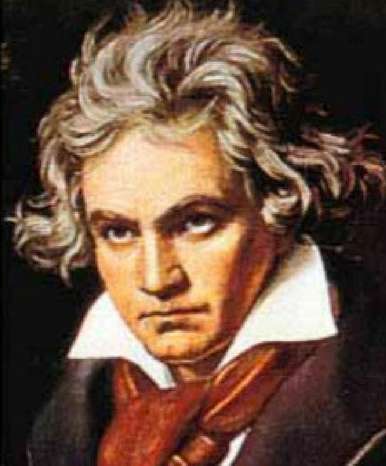In this History of Classical Music Part 3 article, we’ll discover a few of the different composer names that are important to the genre, as well as some other important names you’ll recognize as well.
In part 1 of this series we learned that the term ‘Classical’ has two different meanings. In part 2 we learned of a few important turn of events that changed the business and art of music forever. It truly was a remarkable time.
Composers and conductors put together larger and larger orchestra groups.
The years we are discussing right now are from roughly 1750 – 1820. It’s important to know that the Baroque period of time was fading and musicians were really starting to break out and take control of their art in both the sense that they no longer needed to be employed by an individual or family in order to have an audience. They also started to move out of the chambers… this means that concert halls really got going, and the theater life became more exciting as well as composers and conductors put together larger and larger orchestra groups. What a fun time!
During the Baroque period of time (just previous to classical) there were a few composers I’d like to mention here just so you can get your ‘bearings’:
- Johann Sebastian Bach (the one all flute players know and love)
- George Frideric Handel (famous for the Messiah etc)
- Johann Pachelbel (wedding music like crazy… Pachelbel’s Canon)
- Antonio Vivaldi (The Four Seasons)
I encourage you to look these up and listen to their music. It’s incredible and definitely lives on even today – many, many years later.
The “new” Classical music has its own set of famous composers as well:
- Johann Christian Bach was Johann Sebastian’s youngest son. In fact, he was the youngest of their surviving 11 children. *I’m actually quite proud of Johann Sebastian for passing music down within his family. Good job! Johann Christian was known as the “London Bach” or the “English Bach” or just plain “John Bach”. Apparently he was quite gifted as a musician.
- Ludwig van Beethoven was quite monumental during this time period as well. He was quite a child prodigy and worked really hard on his craft with his father helping him every step along the way.
- Franz Joseph Haydn was an interesting fellow considering that he was Beethoven’s teacher! He was also a very good friend to our next example composer, Mozart.
- Wolfgang Amadeus Mozart is probably one of the most famous names in music still today (my opinion). It just seems that anyone and everyone has at least heard of him, even if they don’t know what his music sounded like. He was also a child prodigy (as they called it) whose musical compositions and performances went ‘viral’ through the courts during this time.
It’s fun learning about this time period, isn’t it? The musicians, composers, conductors, and other artists were so iconic and important to shaping the music we have today. We can’t ignore their awesomeness.



